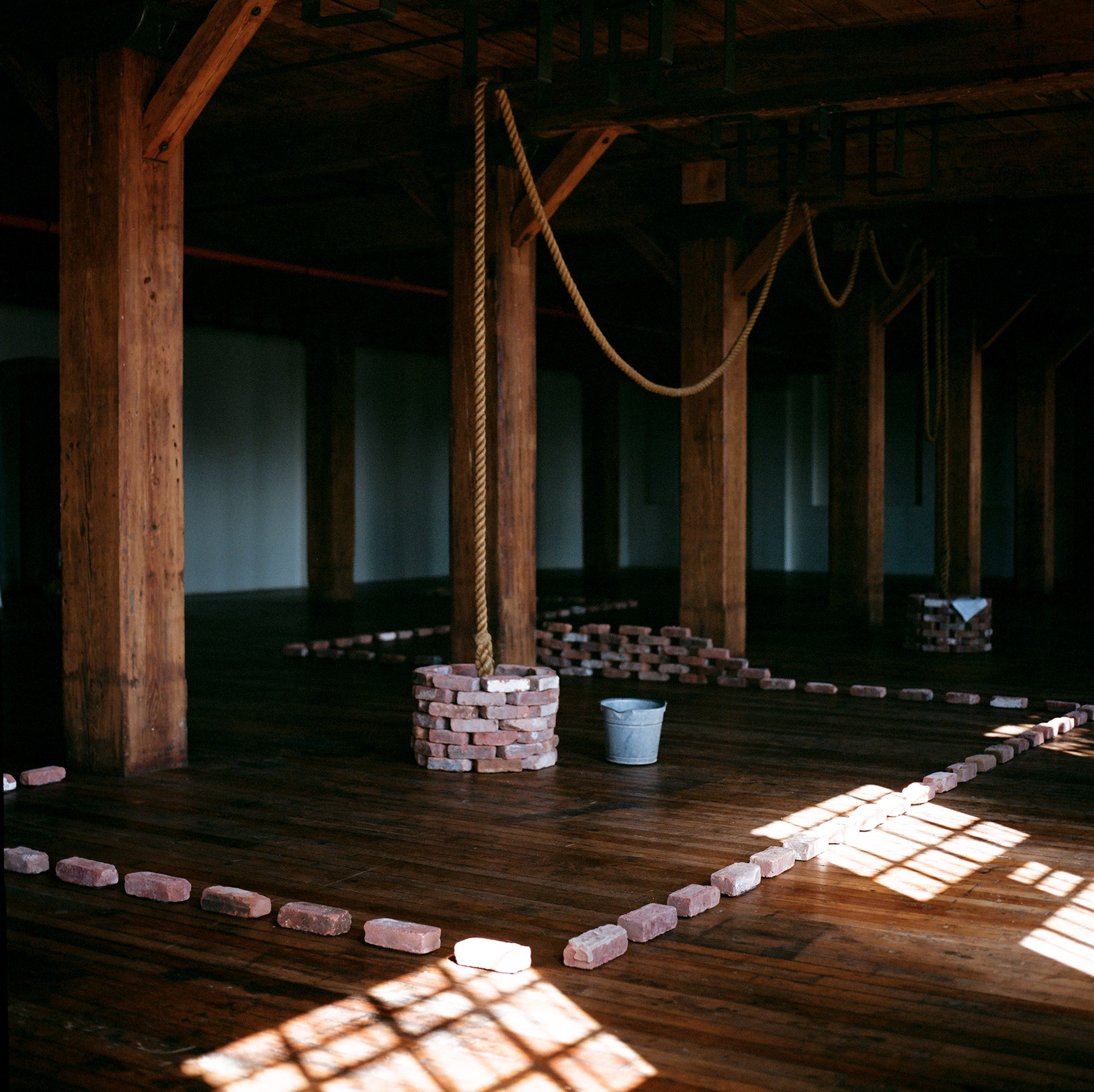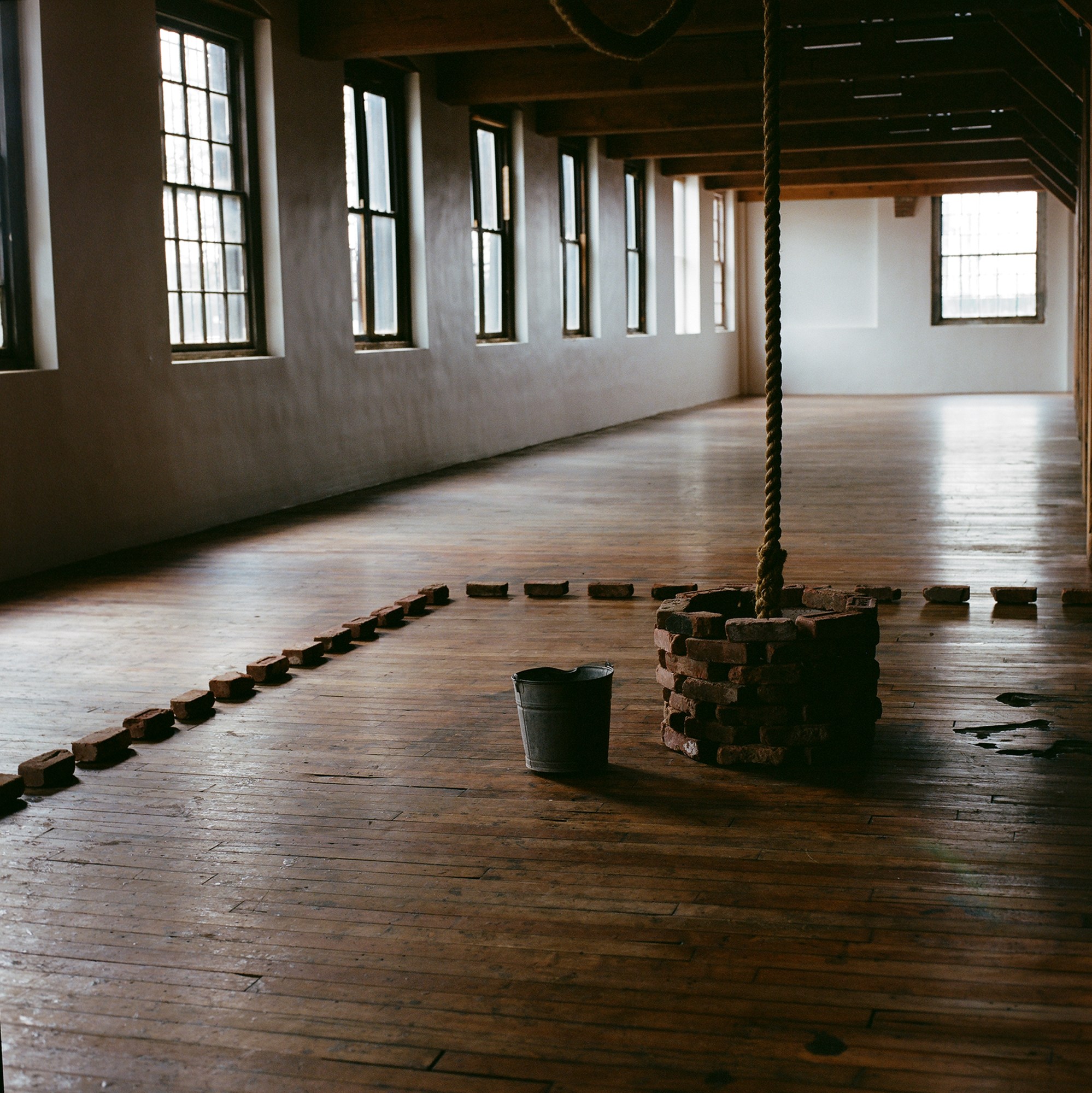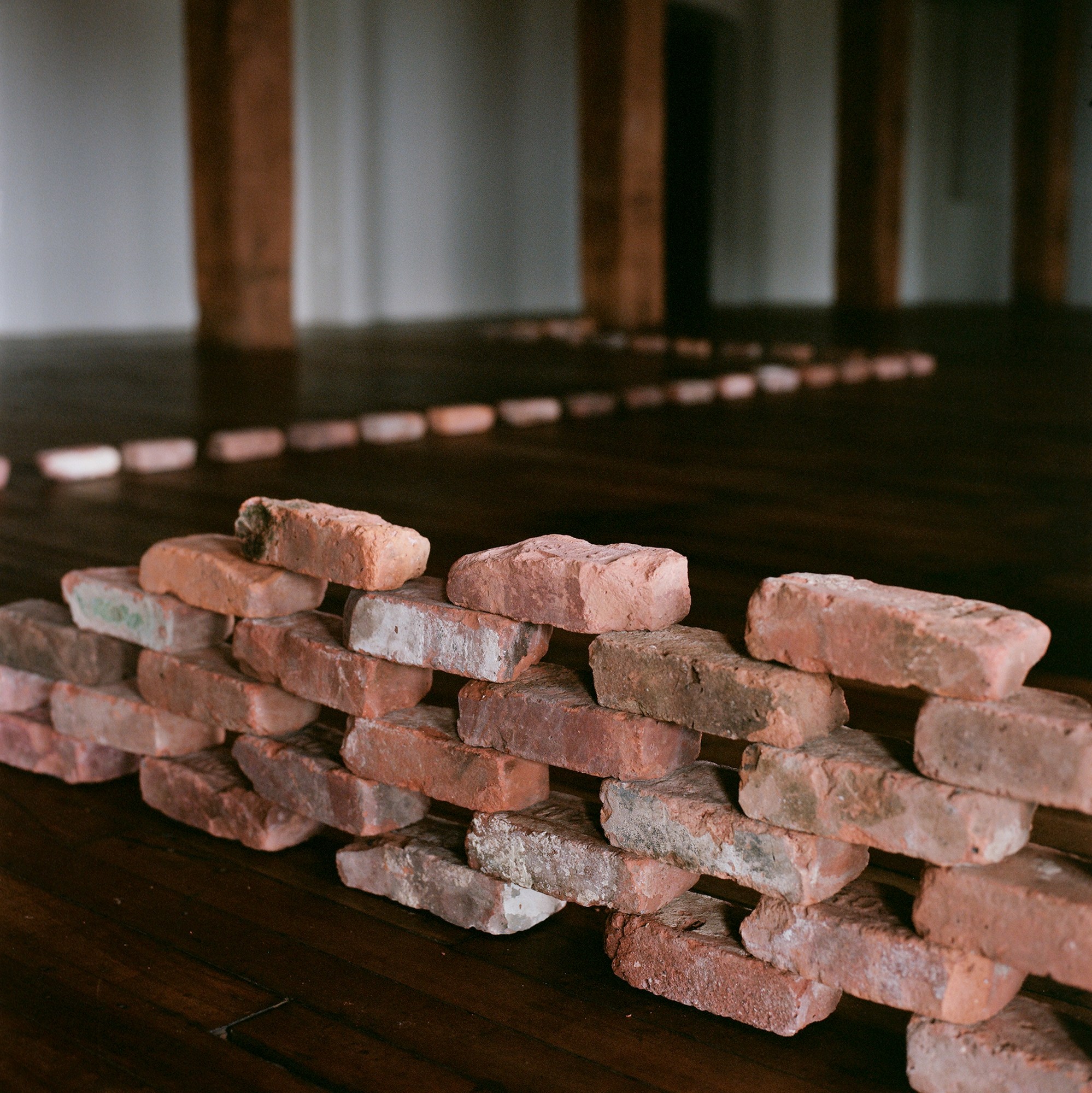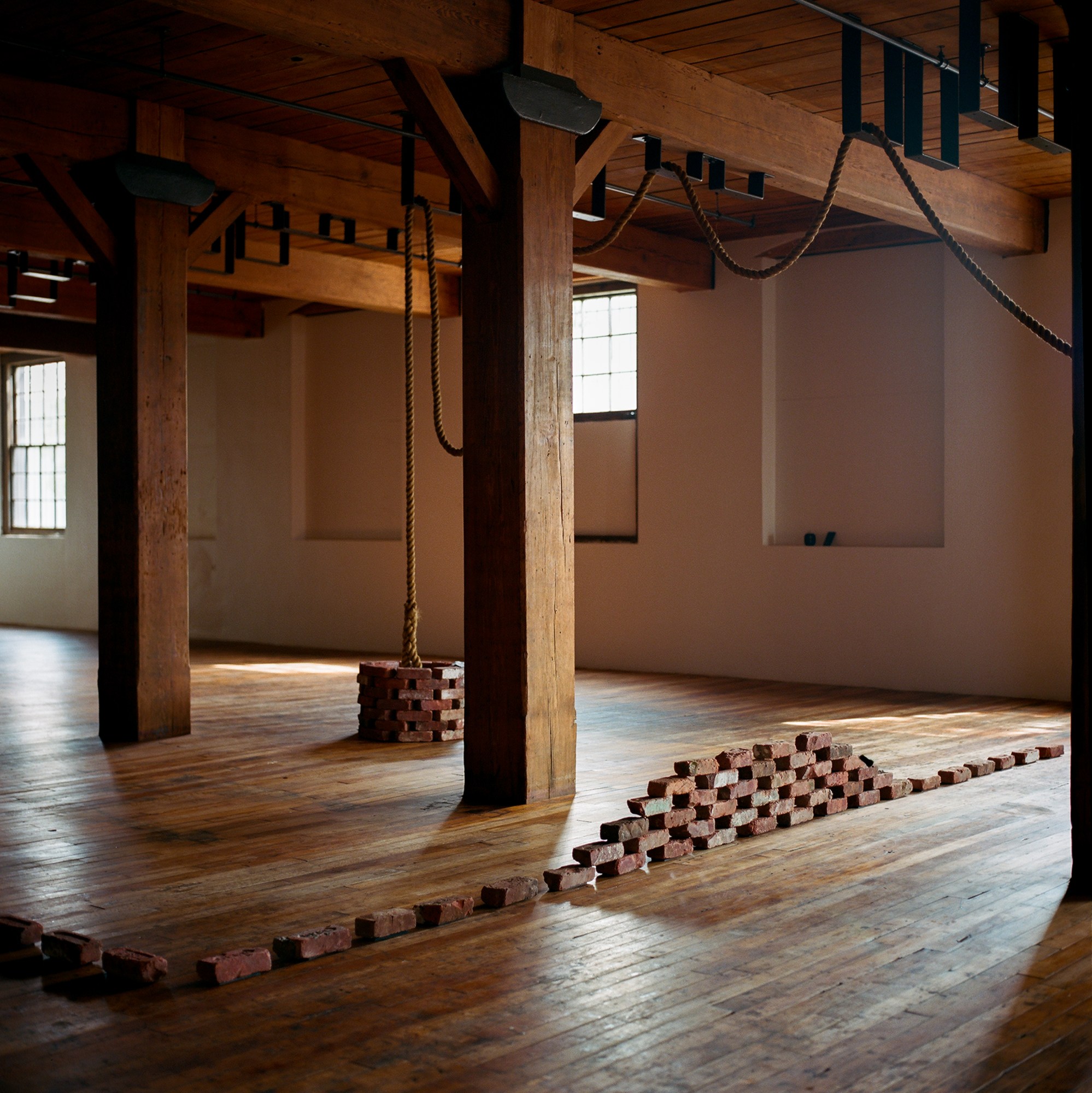When the world feels like it’s falling apart, how can an industry that’s long traded on its reputation as an escapist haven appropriately carry on? It’s a question that professionals across the fashion industry have had to reckon with. Some may argue that its capacity to distract us from humdrum reality is needed now more than ever. But a more convincing argument is that the countless powerful platforms that the industry’s trillion-dollar ecosystem houses should be actively raising awareness of — and inciting action to remedy — the pressing sociopolitical and existential issues of our times. But how can it do that?
It’s a question that Sarah Law, the founder of New York accessories brand KARA, has been asking herself recently. Taking its name from karaoke, meaning ‘empty orchestra’ in Japanese, she founded the label with the intention of creating an “empty space” in which identities could be expressed at in their fullest. “I wanted to create this platform where we talked about and focused on other people’s stories of their identities and how they formed them,” she says, an approach shaped by her own experience of never quite feeling that she belonged to any particular space. “My experience of identity has come from my background and growing up with these big contrasts: being born in LA and raised in Hong Kong; being biracial and also growing up in an international community,” she explains. “One of the biggest points with Kara was to hear people’s stories about their own identities from themselves. I think a lot of times you’re hearing the brand tell you who a person is, but I’m very interested in keeping that space open, keeping it available for you to talk about who you are.”

This led to the development of KARAyouBEyou, a series focussed on “highlighting other people’s forms of expression” by giving visual artists like John Yuyi, Masha Reva, Esmay Wagemans and Ágústa Ýr free rein to articulate their creative interpretation of the brand.
In the wake of this year’s events, particularly the large-scale mobilisation of the Black Lives Matter movement in the wake of the killing of George Floyd, Sarah was compelled to use the KARA brand as a platform for artists directly engaging with the issues at hand. For the first project in this new way of working, Sarah reached out to Gala Prudent, a 21-year-old visual artist based in Brooklyn. “What stood out to me about her work is that what she’s really been trying to address her identity in it,” she says, with a particular focus on “Black life and Black culture and what it means to be Black for her.”
“I was also very interested in speaking with somebody who was young, who was at a transition point, where there might be more of a divide between their personal and professional life,” she continues. “Her work very much speaks to this process of understanding for herself what her identity is.”

“My practice is difficult for me to grasp at times because so much of that is still in the process of being defined,” Gala agrees, “I think that that, as a state of being, is definitely an integral part of what I consider to be my practice.” It’s a fair response, given that she’s still enrolled in her studies — at two schools, no less. “I go to Cooper Union for Visual Art and I study at Brown. I’m in this major called ‘Modern Culture and ‘Media’,” she says. “One is an art school and one is a liberal arts school. They’re both rigorous programs, so I consider those two methods of learning and critique and discussion to be the columns that uphold the ways that I engage with the world, to some degree.” This dual submersion in contexts of institutional learning shapes her artistic approach, with “study and consideration and discussion” serving as the keystones of her understanding of herself in both personal and professional terms.” I guess that the best way to describe my practice right now is as an intimate engagement with academic notions of inhabiting Blackness.”
For the film she worked on in collaboration with KARA, Gala was given a free licence to create an installation within the roomy expanse of a Brooklyn warehouse. “I think that the sort of conceptual underpinning of the work was also deeply engaged with the physical experience of making the work,” she reflects. “It began as a meditative process, just having the opportunity to be in a space of that scale by myself, to sort of take a breath without a mask on for once, and be able to feel the space and walk around, which was something that I hadn’t been able to do in months.”

Responding to the works of thinkers like Fred Moten, Christina Sharpe and artist and writer Aria Dean, that act of meditation began to focus on notions of selfhood and what it means to occupy a Black body — and the trauma that entails — in the current day and age. Thick rope trails across the beams of the cavernous space, its allusion to the “very explicit and disturbing injustice” that continues to be committed against Black bodies impossible to ignore in light of the events of recent months. But there are distinctly hopeful aspects to the work; the brick wells into which the rope dips, for example, filled with a glittering black mesh as if to suggest the possibility of empowered, plural Black identity beyond a dominant, institutionalised gaze. “I was thinking about a lot of these writers who write about reconceptualising Blackness, or reinhabiting or reembodying Blackness,” she says, “I was really thinking about underneath-ness, and imagining what could be below these two wells that I built, thinking about them as a method of accessing this knowledge that exists below where we exist.”
For a project facilitated by a brand, the lack of product focus is indeed conspicuous — the only aspect at all related to KARA’s accessories is the earlier-mentioned mesh that lines the well. It’s an approach that might raise question marks, but for Sarah, it simply comes down to recognising that “there’s a responsibility to use your platform, if you have one, to talk about issues that are really important,” she says. “Our community has always been a really big part of the brand and while we can’t actually see as many people as we used to on a regular basis, talking about real issues that people are going through feels like a nice way to stay connected.”
Interested in discovering more of Gala’s work? You can here in Through Our Eyes, an exhibition funded by a grant from the D.C. Commission on the Arts and Humanities.

